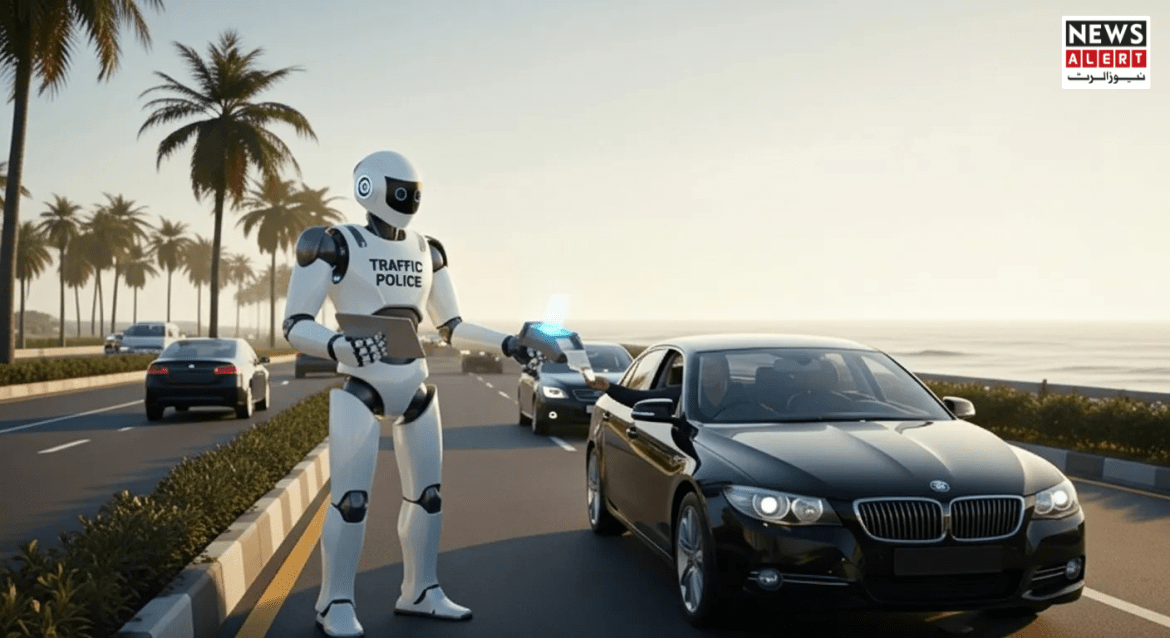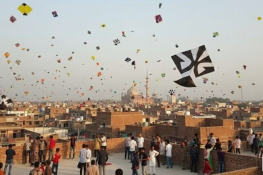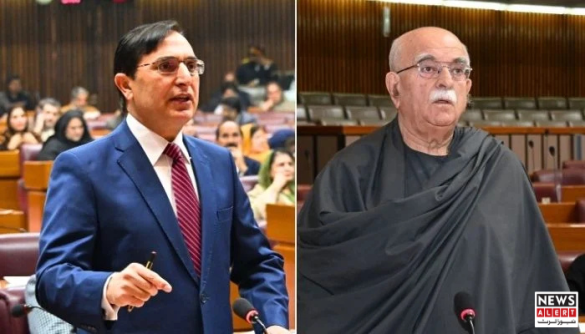Robots to Enforce Traffic Rules in Karachi
In a landmark move towards technological policing, Karachi’s traffic department has announced that robots will soon be deployed to monitor roads and issue traffic fines. This initiative marks a new chapter in Pakistan’s largest city’s ongoing efforts to modernize urban governance and improve traffic management.
According to local authorities, the decision follows the introduction of an electronic ticketing (e-challan) system that began operating on October 27. The system allows violators to receive traffic fines directly at their registered addresses through a centralized database. Building on this digital foundation, city officials now plan to integrate robotic enforcement units as part of a broader smart city approach.
From E-Challan to Robotic Surveillance
Speaking at a public event, Deputy Inspector General (DIG) of Traffic Police Pir Muhammad Shah revealed that the department is ready to move into what he described as the third stage of automation. The first two stages involved digital monitoring through cameras and the e-challan mechanism; the upcoming phase introduces autonomous robots for real-time traffic monitoring.
These robots will be deployed on major roads across Karachi, including Saddar, Tariq Road, and other high-traffic zones, Shah said. They will patrol streets at a speed of around 20 kilometers per hour, scan vehicles, and automatically record any traffic violations such as illegal parking or lane violations.
Once the system verifies a violation, the robot’s report will be processed, and the vehicle owner will receive an electronic ticket automatically. The initiative, officials claim, will minimize human interaction, reduce corruption, and enhance efficiency within the city’s traffic management system.
A Step Toward Transparency and Automation
DIG Shah emphasized that the introduction of robots aims to increase transparency and reduce human bias or pressure in traffic enforcement. He noted that human officers often face challenges such as on-the-spot disputes or pressure from influential individuals, issues that automation can largely eliminate.

By relying on advanced technology, we aim to make the process fairer, faster, and more transparent, he explained. Citizens will know that the system works purely on evidence and data, not personal discretion.
The robots will reportedly be equipped with high-resolution cameras, license plate recognition systems, and wireless connectivity to relay information directly to the central control room. Each unit will also feature sensors capable of identifying illegally parked vehicles and monitoring traffic flow in real time.
Karachi’s Growing Traffic Woes
Karachi, home to more than 20 million residents, has long struggled with chronic traffic congestion, poor road discipline, and limited enforcement capacity. A 2023 report by Pakistan’s Urban Transport Authority estimated that the city experiences over 1,200 traffic accidents per month, many caused by violations such as signal jumping and illegal parking.
Experts say the move to automated systems could help address these problems if implemented properly. However, they also caution that infrastructure limitations and maintenance challenges could slow progress.
Technology can help, but only if integrated with better road planning and public awareness, said a transport analyst based in Karachi. “Robots may issue tickets, but long-term improvement requires education and consistency.
Pakistan’s First City to Introduce Traffic Robots
With this initiative, Karachi will become the first city in Pakistan — and one of the few in South Asia — to use robots for issuing traffic fines. While some countries, including China, Japan, and the UAE, have experimented with robotic policing, Pakistan’s adaptation reflects a growing interest in smart urban technologies to address civic problems.
Officials expect the pilot phase to begin next month, after which data will be analyzed to assess the program’s effectiveness. If successful, the initiative could expand to other major Pakistani cities such as Lahore and Islamabad.
For Karachi’s residents, it means that breaking traffic laws may soon carry a new risk: being caught by a machine, not a human.















